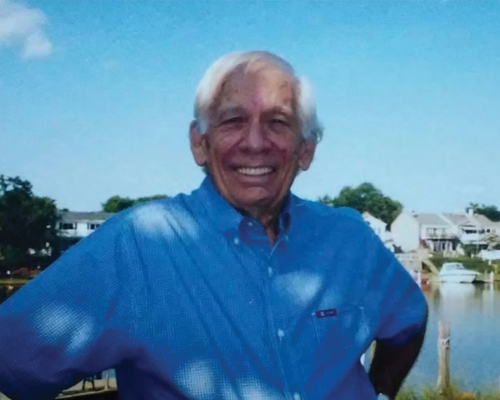CHAPTER 17 - Too Little, Too Late
Now I was sure that Dotty meant for her father to die and was frantically trying to find ways to stop her. I did not know that any attempt to intervene and stop elder abuse by family was seldom successful. Most victims are too old, ill or frail to testify or to go through court or other systems.
While Rob was still in the rehab facility, I began sending him a note or a card when I could not visit him. I was still doing some work as a Realtor, and was also spending a lot of time trying to stop Dotty. When he was transferred to Assisted Living, I continued, and began giving him suggestions, greetings from his neighbors and questions about what Dotty was doing. I hoped that Rob would pay more attention to written suggestions and urged him to speak up for himself. However, I believe he initially was too uncertain about what was happening to him, and later too terrified and confused.
ALWAYS RECOMMENDED BUT TOTALLY USELESS
I had reported elder abuse to the county Adult Protective Services (APS), despite my misgivings about government services. After a week with no response, I called to see if anything had been done. Two days later, I received a voice mail message from APS: “the case you referred was screened out by the supervisor, so it is not assigned to anybody. If you have any questions, call…..” I did call, many times, to question why and to ask to talk to the supervisor, but never got any answers.
Just as I feared – another incompetent and unhelpful government agency. Or was it possible that Dotty found out about my complaint and was able to stop it? Was Dotty able to deflect APS?? I wondered -- but now feel sure that someone on assisted living (AL) staff, was taking orders from Dotty.
I believe that what happened just a few days after I registered with APS was because Dotty knew about it. On that day, when I arrived to visit Rob, he would not speak to me. I had no idea why he wouldn’t talk. He relented after a while, and one of the things he stated was – “what happens to my house affects your house.” This made no sense, but it could have been Dotty’s doing – telling some huge lie about me or threatening him – because she knew I was pursuing an investigation.
NO ONE LISTENED
One of the major drawbacks of attempts at intervention of abuse, is that the staff will know about upcoming appointments of any investigation. And if any staff members are, knowingly or not, complicit in abuse cases, abusers can prevent or manipulate the investigation – causing more harm than good.
I was sure that Dotty was lying to staff members about me. Starting in the rehab facility, I introduced myself to therapists and social workers as a close, long -time friend. No one ever consulted me. And at the front desk of AL, when signing in or asking questions, I never got much help. In the first week at AL, when I checked in at the front desk, I was told he was not there. When I asked why or where he was or when he’d be back, they were evasive and said I should contact the family. (It turned out that he had been hospitalized for a urinary tract infection. This indicated a lack of care by AL and/or a lack of information about his medical history.
YOU NEED TO KNOW
There are reasons why staff in long term care facilities don’t report incidents of elder abuse and neglect. If they did, It would go far in reducing abuse.
- Ignorance – Some care workers may not know what constitutes abuse. Many previously approved practices are no longer acceptable, and newer employees may not be properly trained. If it can’t be identified, it certainly won’t be reported. A recent review concluded that health and social care professionals in the United States “consistently underestimate the prevalence of elder abuse.”
- Normalization – Many health care workers see multiple instances of elder abuse. They are likely to reason that if everyone else does it it must be okay and so there is no need to report any of it.
- Fear – Those workers who witness neglect and abuse may not report it for fear of being censured, vilified, blamed, shunned by their co-workers or even losing their jobs. They may be threatened and/or intimidated by supervisors, managers, administrators and/or facility owners who wish to maintain the status quo for various reasons including convenience or keeping costs down, or who simply don’t know what to do about it.
- Complacency and cynicism – It takes vast reservoirs of courage and determination to change the system. Our eldercare systems and long-term care facilities are severely broken. Whistleblowers who speak out at great personal risk but to no avail may simply give up.
- A Perpetrator’s Paradise – While a good number of staff are compassionate and caring, the sad and sick truth is that long term care facilities are ideal stomping grounds for people who enjoy abusing the weak and vulnerable.
INTERVENTION – LAST TRIES
I was trying to find an elder care attorney who might help. I tried six different attorneys. Some said up front that they couldn’t help me; the rest said they would talk to me after payment of a hefty fee – no promises. I spoke with one of these, who wanted to handle all my legal affairs, promised to get me the information about ownership of the assisted facility Rob was in, and was never heard from again.
I next called Rob’s family doctor, who had a large and flourishing practice, and asked to talk to him about the abuse. An appointment was made, but the doctor did not see me – he sent his office manager. I told her what was happening. She offered one piece of advice. I followed it and it was the cause of the final blow, but also revealed the panic of the Assisted Living administration. My only communication with Rob was in person or in writing, and even that was soon cut off.
BEWARE AND BE AWARE
Anyone, anywhere, can become a victim or a perpetrator of abuse.
Elder abuse by family can seldom be stopped, except by the death of the elder.

















